When Australia shocked the Olympics
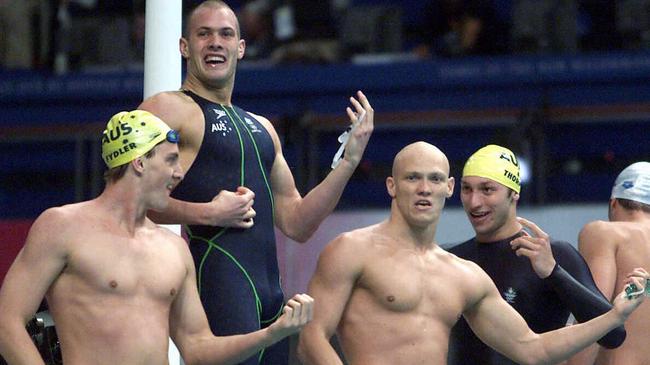
Sieben swoops
Jon Sieben stood on the blocks in lane six at the McDonald’s Olympic Swim Stadium at the 1984 LA Olympics. He had qualified for the final of the 200m butterfly by lowering his personal best by nearly two seconds.
The US TV commentator Jim Lampley described Sieben, 17, as “a bit of an outsider, but you don’t count out any Australian from medal contention”.
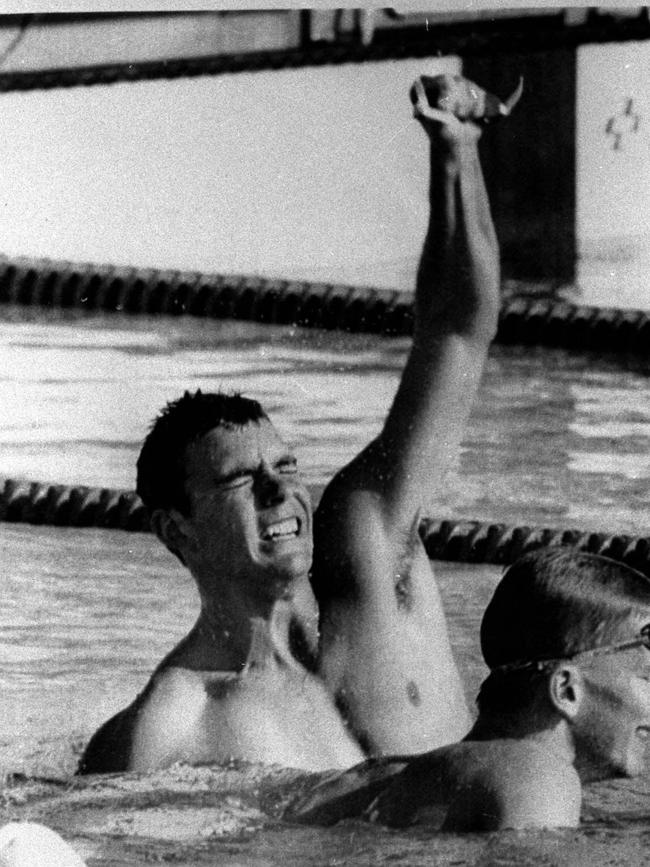
In lane 4 was world record-holder Michael Gross. The man known as The Albatross due to his wing span of 2.11 metres, nearly the width of a swim lane. Quite a weapon for the butterfly. The West German had already won two gold medals at the LA Games and this was his pet event.
Sieben started slowly. He was seventh at the 100m mark, but had moved to fourth by the final turn. As the West German tired, Sieben picked off the leaders until he swamped Gross in the final three strokes to win gold and break the world record by .01sec. It was labelled the greatest upset in Olympic swimming. Gross had a reputation for arrogance but even he was smiling and, in a great show of sportsmanship, swam to the Queenslander and embraced him.
Watt dupes her rivals
Frenchwoman Jeannie Longo was the unrivalled superstar of women’s cycling. As she crossed the finish line in the countryside around Sant Sadurni d’Arnoia she was jubilant. After nine world titles and 12 national crowns, Longo believed she had claimed her holy grail, the Olympic road race in Barcelona in 1992.
It was short-lived joy. Twenty seconds earlier underestimated Australian Kathy Watt had slipped across the finish line. The Victorian had duped her rivals. In the final kilometres, British rider Marie Purvis and Italian Maria Turcotto were in a breakaway but in a daring tactical manoeuvre, Watt not only hunted them down but rode straight past, gambling on a solo ride to victory.
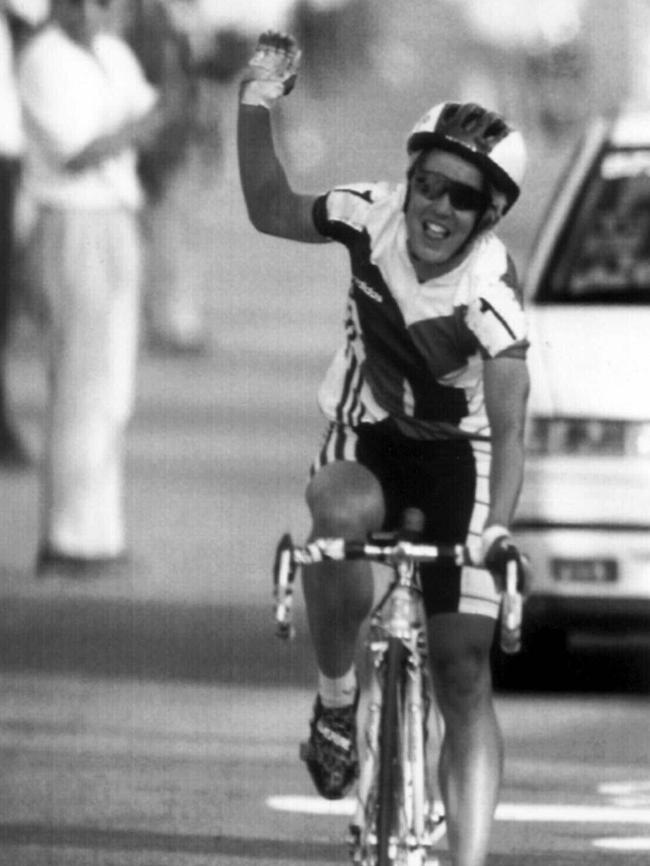
When the peloton caught the breakaway, they had no idea the Australian was ahead. “With about three kilometres to go, I was leading by 45 seconds and I think the bunch must have forgotten about me,” said Watt.
She was as confused as Longo at the finish. “I didn’t know that I had won for a while,’’ she said. “I looked up and saw these two girls in front of me and thought I might have come third.’’ As for Longo, she finally got her road race gold medal four years later in Atlanta, aged 37.
Mitcham’s perfect 10
The men’s 10m was the last of the eight diving events of the Beijing Olympics. Like Seven Brides for Seven Brothers, the top of the podium had so far proved a perfect match for China’s divers. A clean sweep of eight gold medals for the hosts beckoned.
China’s Zhou Luxin took the lead after the first dive with Australian Matthew Mitcham well back in ninth. Mitcham moved through the field and heading into the sixth and final round was in second place trailing Zhou by 35 points.
Zhou dived first but was a fraction short with his entry into the water. The crowd was enthusiastic, the judges less so. A score of 74.80 left the door ajar for Mitcham. To win, he needed a near perfect score with what was then the most complex dive in the book — a back 2½ somersault with 2½ twists. Mitcham hit the water like an arrow. Former British Olympic medallist Leon Taylor exclaimed in the BBC commentary booth: “I invented that dive and he’s just perfected it!”
As Mitcham wept on the pool deck, scores of 10s and 9.5s flashed up on the scoreboard for a total of 112.10. It remains the highest scoring dive in Olympic history and it was enough for Mitcham to scrape past Zhou by a mere 4.6 points.
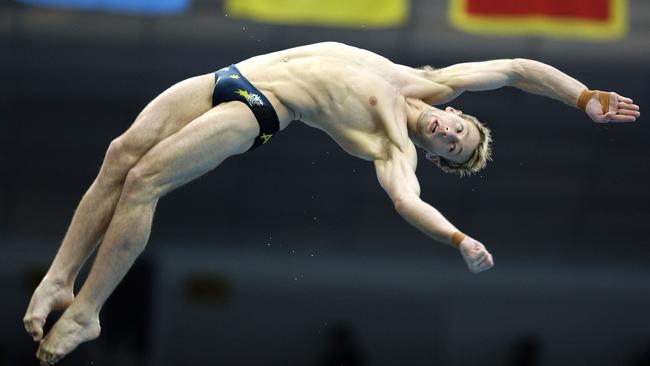
Esposito’s stunning run
Very few people outside of modern pentathlon rated Chloe Esposito as a medal chance ahead of the Rio Olympics. Her world ranking of 52 belied her stature in the sport, with her seventh placing at the London Olympics having gone almost unnoticed in Australia.
Since London, Esposito had moved to Budapest to work on her weakness in fencing. In Rio, she produced a personal best in the discipline but was still well back in 13th place. The Australian then produced her fastest swim in four years and survived the lottery of the showjumping.
She entered the final leg, the laser-run, in seventh place, starting 45 seconds behind leader Oktawia Nowacka of Poland. Over the next 13 minutes, Esposito had Australian journalists and TV presenters scrambling to learn the rules of the event as it became increasingly obvious that a historic gold medal was on the cards.
In the laser-run, Esposito needed only 21 shots to hit 20 targets. Her leg speed and shooting accuracy soon engendered panic among her rivals who missed shot after shot on the range. By the time she left the fourth shooting station, Esposito was in the lead and was not going to be run down as she went on to set an Olympic record.
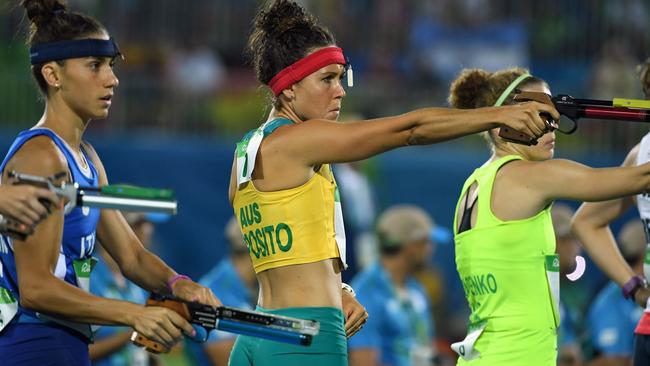
Smashed like guitars
The Americans entered the Sydney Olympics unbeaten in all 15 previous Olympic and world championship finals in the 4x100m freestyle. Their best swimmer Gary Hall Jr had stirred the waters by declaring the American squad would smash Australia like guitars. It was more of a good-natured gibe than an arrogant declaration, but it was motivation nevertheless.
Head coach of the Dolphins, Don Talbot, had devised a strategy for relays that Australia would lead off with their best swimmers and let the opposition chase. Michael Klim’s start was perfect, breaking the 100m individual world record as he handed over to Chris Fydler. The remaining legs followed a familiar pattern with the Americans surging past in the first 50 metres only for the hosts to fight back.
As so it was when Ashley Callus gave Ian Thorpe — who had earlier that night won the 400m freestyle — a 0.25sec lead for the final leg. Hall quickly swam past Thorpe, but could not shake him. In the final few strokes the Australian edged in front and when Thorpe touched the wall, a dynasty had fallen. It was a world record and to celebrate the Australian quartet famously played air guitar on the pool deck.

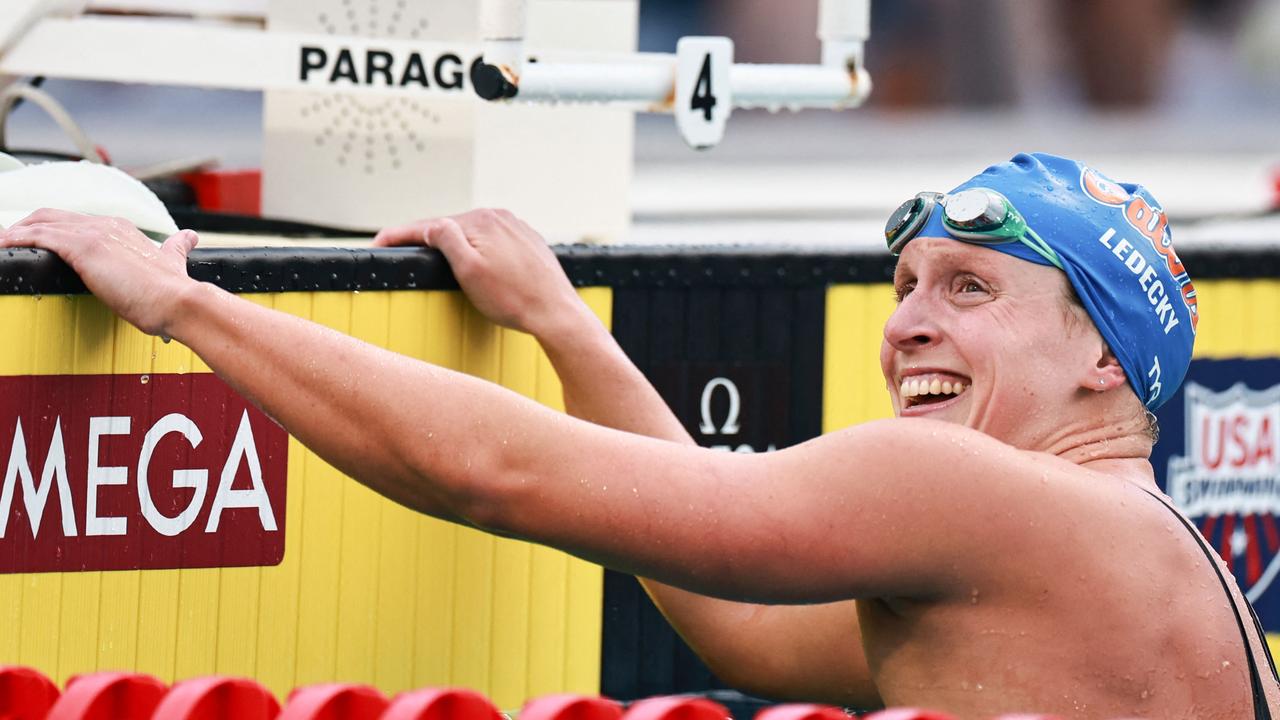

From Jon Sieben shooting down ‘The Albatross’ to smashing the Americans like guitars, these are Australia’s five greatest Olympic upsets.